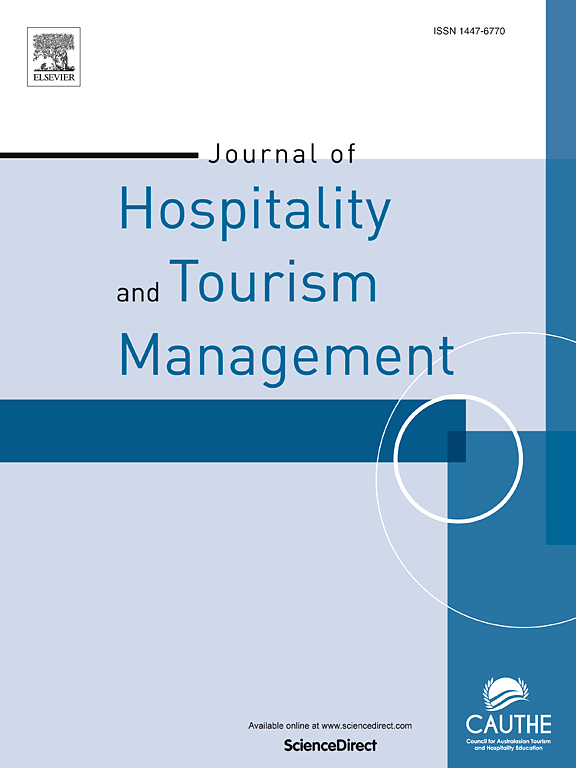自我提升或自我贬低:幽默如何拯救不完美的服务机器人
IF 7.8
1区 管理学
Q1 HOSPITALITY, LEISURE, SPORT & TOURISM
引用次数: 0
摘要
尽管机器人在接待服务中越来越普遍,但响应速度慢等问题仍然存在。本研究考察了两种幽默风格(自我提升和自我贬低)对客户继续使用不完美服务机器人的意图的影响,以及边界条件和潜在机制。我们进行了三个基于场景的实验来验证所提出的关系。结果显示,与自嘲式幽默相比,自我提升式幽默会导致更强的持续使用意愿,尤其是在标准化服务环境和豪华酒店中。这种效应是由更高的趣味性和专业性所驱动的。本研究对客户-机器人交互的文献有贡献,并为服务机器人在故障情况下的设计提供了实际意义。本文章由计算机程序翻译,如有差异,请以英文原文为准。
Self-enhancing or self-deprecating: How humor rescues imperfect service robots
Although robots are increasingly common in hospitality service encounters, issues such as low response speed persist. This research examined the effects of two humor styles (self-enhancing vs. self-deprecating) on customers’ intentions to continue using imperfect service robots along with boundary conditions and underlying mechanisms. Three scenario-based experiments were conducted to test the proposed relationships. The results revealed that self-enhancing humor led to stronger continued usage intentions compared to self-deprecating humor, particularly in standardized service settings and luxury hotels. This effect was driven by higher perceptions of playfulness and expertise. This research contributes to the customer–robot interaction literature and provides practical implications for service robot design in cases of malfunction.
求助全文
通过发布文献求助,成功后即可免费获取论文全文。
去求助
来源期刊
CiteScore
13.30
自引率
8.40%
发文量
177
审稿时长
45 days
期刊介绍:
Journal Name: Journal of Hospitality and Tourism Management
Affiliation: Official journal of CAUTHE (Council for Australasian Tourism and Hospitality Education Inc.)
Scope:
Broad range of topics including:
Tourism and travel management
Leisure and recreation studies
Emerging field of event management
Content:
Contains both theoretical and applied research papers
Encourages submission of results of collaborative research between academia and industry.

 求助内容:
求助内容: 应助结果提醒方式:
应助结果提醒方式:


